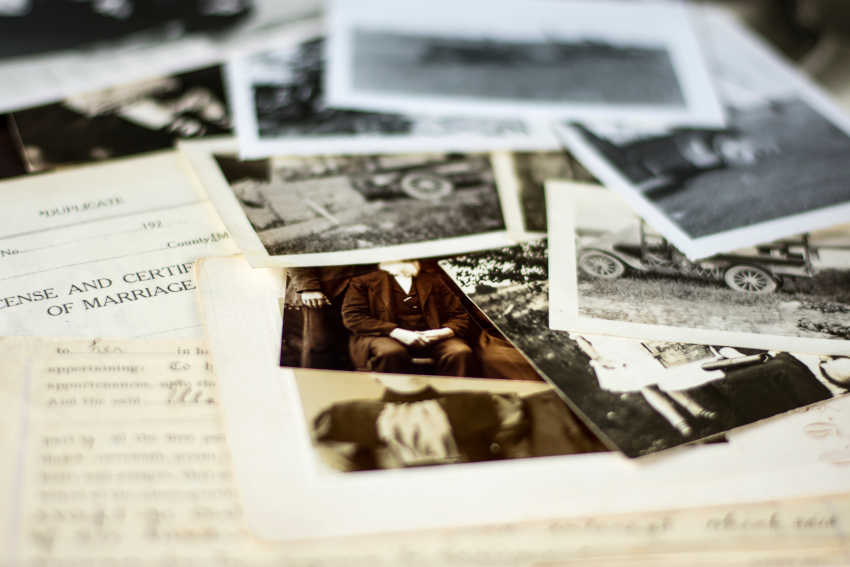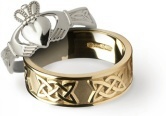Blog Categories
Blog CategoriesTips on Discovering Irish Genealogy
 |
Ireland has become one of the world leaders when it comes to standards in researching genealogy. There has never been a better time to research your Irish history and find out just what your ancestors were up to!
This huge turnaround in the ease of now accessing Irish genealogical records, means that more material and sources are available than ever before. While Ireland previously lagged behind in making online records available, it has surged forward and is now considered to be world-class.
So where do you start if you want to research your Irish history and identity?
The first thing to do, before accessing any official records, is to dig deep and find out the knowledge that already exists within your family. There might be much more material than you think and by talking to family members back as far as you can through the generations, you can compile any records and photographs and knowledge that is already available inside your family circle.
So, begin by talking to parents, uncles, aunts, cousins, grandparents and great-grandparents if you have them. Many families have one or two people that enjoy keeping track of the extended network of family members and hold records and photographs. Compile everything you can even if it seems unimportant or trivial at the time. You can edit and become more precise later in your research process.
Oral History is also important
Look for names, addresses, occupations, photographs and any bit of narrative that you can find. If there are older members of the family, it can be a good idea to record some of the oral history in their knowledge base, as this can be invaluable both now and into the future.
The increased awareness of the huge numbers of people from around the world who descend from Irish emigrants and who are proudly looking for their history and roots, is now recognised by the Irish government and there are now a huge number of publicly funded websites and sources across the Republic of Ireland and Northern Ireland.
Some of the really fascinating and easy to use websites and sources include: irishgenealogy.ie; askaboutireland.ie; databases.dublincity.ie; genealogy.nationalarchives.ie; nidirect.gov.uk/proni and rootsireland.ie.
Through these great portals, people of Irish origin can now trace their family members back to at least as far as the 19th century easily and for free. In addition to the free services, there are many paid genealogy services that can guide you and help you to trace your ancestry, even using home DNA kits where necessary.
Fascinating National Archive
The genealogy portal at the National Archives of Ireland is one of the key websites for tracing Irish ancestry. It offers free access to the surviving census fragments from 1901/1911, in addition to substitute sources. It’s straightforward to search raw census data and then follow on by viewing PDF copies of the original documents. What you’ll uncover, depends on the quality of the surviving records.
The National Archives of Ireland census website - census.nationalarchives.ie - is completely free. It contains really interesting visuals of the earliest complete censuses of 1901 and 1911, complete with signatures and overviews of family names, addresses, relationships and occupations. It’s absolutely fascinating to get a window into this world gone by.
The bad news is that a hugely valuable quantity of records that are irreplaceable was blown up in 1922 and they are completely destroyed with no access at all now. But there are four great other sources across civil registers, censuses, church records and tax surveys and they all survived and are online and also free.
Births, Deaths and Marriages
Another fantastic source is to search the civil records of births, marriages and deaths. Registration began for everyone in 1864. The Department of Culture, Heritage and the Gaeltacht runs an excellent free site at irishgenealogy.ie and this includes full images of what was recorded on the original registers for births 1864-1916, marriages 1870-1941 and deaths from 1878-1966.
Griffith's Valuation (1847-1864) is a brilliantly detailed property survey, carried out to assess local taxes / rates. It’s a great census substitute before 1901 and it is free online at askaboutireland.ie which is run by the Irish government.
When researching it’s advised not to give up if you don’t immediately get the information as there can be variants on surname spellings and you will need to be creative and try plenty of options and variations.
It’s important to note that for the years before civil registration in 1864, the only direct sources of family information come from the church registers of baptisms, marriages and burials.
The National Library of Ireland (NLI) also has a wide range of resources around ancestry including microfilms of historical documents that have been digitised.
There are also some great commercial genealogy sites - Find My Past and Ancestry. Rootsireland.ie also covers about 80% of pre-1900 registers. Heritage centres dotted around Ireland are also fantastic if you are able to travel to do your research and they’re usually run by enthusiastic local volunteers.
Many countries don’t have the great free online resources that Ireland has. While they’re in different formats and in different locations, they’re an absolute gem. There are also some great published books including James Ryan's Irish Records: Sources for Family and Local History (2nd ed Ancestry.com, 1997) and John Grenham's Tracing Your Irish Ancestors (4th ed. Gill, 2012).
We’re all connected and with the amazing resources available to look to the past there’s now an even bigger sense of ever-expanding interconnectedness when it comes to being Irish.
